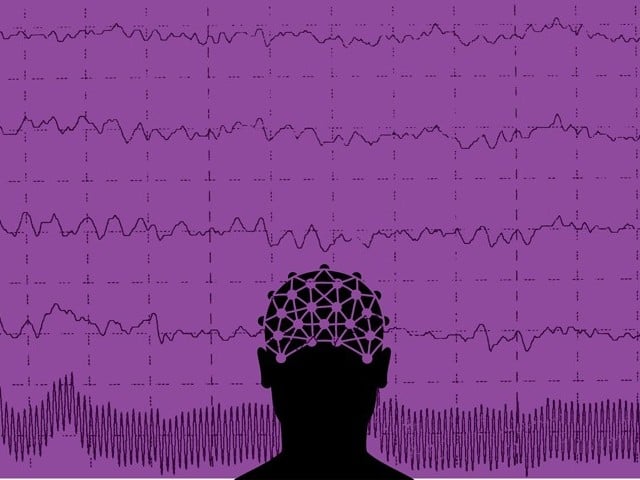
This was stated by Greek epileptologist and International Bureau of Epilepsy (IBE) president Dr Athanasios P Kovanis during a talk titled 'Diagnosis and Treatment of Epilepsy in Global Perspective' organized by the Pakistan Society of Neurology (PSN) at Movenpick Hotel on Monday.
"Pakistan has around two million epilepsy patients with the majority having no access to epileptologists, good quality medicine and specialised healthcare facilities," shared Kovanis. "Greece has 1,300 neurologists for a population of 11 million. However, there are only 200 neurologists in Pakistan for a population of 180 million," shared Kovanis, terming traumatic head injuries, brain infections, inter-family marriages and some hidden causes as the major reasons behind epilepsy. Most of the causes of epilepsy can be avoided to prevent the neurological disorder, he explained.
"A traumatic head injury is one of the major causes of epilepsy in developing countries and its chances are very high in Pakistan as there is no concept of wearing seatbelts or using helmets to prevent serious head injuries," he observed.

Kovanis maintained that there was an acute lack of awareness and education among citizens and primary healthcare givers in the developing world regarding epilepsy, suggesting awareness among primary healthcare givers to timely refer epileptics to specialists for an early diagnosis and proper treatment.
High costs and unavailability of drugs, lack of qualified physicians and specialists, high cost of treatment and unawareness are some the major causes behind poor treatment facilities in the developing world, listed Kovanis.
Renowned Pakistani epileptologist and neurologist Dr Fauzia Siddiqui, who has prepared the 'National Guidelines for the Clinicians' for the diagnosis and treatment of epilepsy, termed brain infections as the leading cause of epilepsy in Pakistan, especially among children.
The basic problem in Pakistan is the lack of qualified and trained neurologists as there is only one neurologist per 1.4 million people as compared to one neurologist per 26,000 people in developed countries, maintained Siddiqui, who is also the president of the Epilepsy Foundation of Pakistan. Even general physicians and doctors are unaware of most neurological disorders, including epilepsy, she added.
Drugs for treatment are available in Pakistan, she said, hoping that with the publication of guidelines for the treatment of epilepsy, clinicians will be able to treat the epileptic patients more easily and successfully.
"There are many myths about epilepsy among the common people of Pakistan," said former PSN president and neurologist Dr Muhammad Wasay, adding that most do not even consider it a disease and call it the influence of evil spirits or term it as a psychiatric illness.
The people believe that epilepsy is not a treatable disease, he said, adding that the situation is even worse for women, as 90% of the epileptic women do not have access to any treatment.
Published in The Express Tribune, September 28th, 2016.



















1713973361-4/Destryed-Gaza-Historical-Sites-(1)1713973361-4-270x192.webp)










1713853507-0/MalalaHilary-(2)1713853507-0-270x192.webp)







COMMENTS
Comments are moderated and generally will be posted if they are on-topic and not abusive.
For more information, please see our Comments FAQ